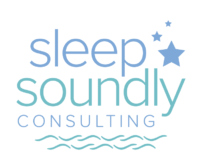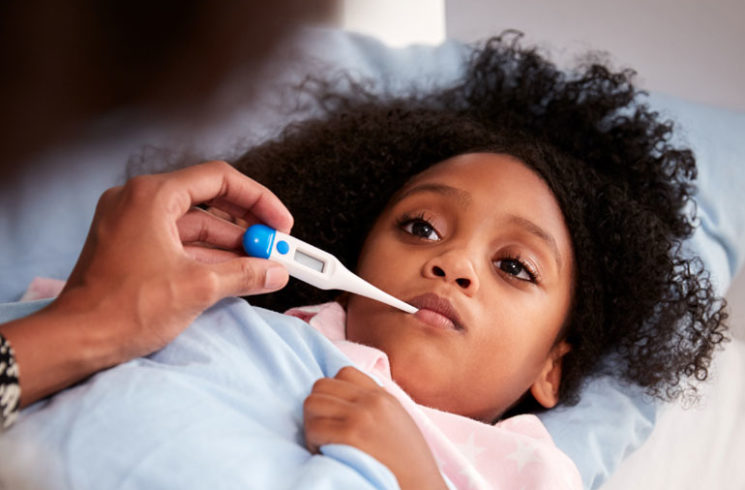COVID, Strep, and the Flu, Oh My! Early this year, my younger son was plagued with all three viruses…AT. THE. SAME. TIME! It wreaked havoc on his small body and of course his sleep. He had trouble falling asleep and staying asleep at night, and was often sleepy during the day. He suffered from high fevers that lasted for days, a horrible sore throat, and the worst cold symptoms. Sound familiar? COVID has not gone away, RSV has been on the rise, and flu and strep are back with a vengeance. Not to mention the good old common cold or stomach bug that are always floating around! It seems we are all experiencing this in our homes. Thankfully, with the right medications and lots of rest and fluids, my son made a full recovery and re-entered the world, though he did need to build back his depleted body, and sleep was one of the best remedies!
The number one question I get asked in my wrap-up call with parents is “now that my child is sleeping so well, what do I do when he gets sick, so we do not have a full regression?” See below for my top suggestions:
- Always seek medical attention from a doctor when needed. Follow the advice and administer the medicine that the medical provider prescribes or recommends.
- Help your child get as much rest or sleep as possible. A sick child is a sleepy child. Her body is working hard to fight germs and infections. Let your child sleep or rest when she needs it. Let her nap as long as necessary (if you normally have to cap a nap, you should not when your child is sick), have an extra early bedtime (even after a long nap), and allow her to sleep later in the morning. Sickness might cause a child to wake super early or wake throughout the night, so getting extra sleep when possible is important.
- Be flexible with your schedule because it’s likely to be distrupted! Fevers, coughing, congestions, etc. can certainly make sleeping a challenge. Allowing your child to sleep during typical wake times is A-OKAY and probably necessary. The extra sleep will help her body fight the virus and regain the strength she needs to get healthy. If she falls asleep before her typical naptime, just let her sleep, do not wake her. If she seems exhausted early in the evening, start the bedtime routine. If she does not usually nap, but falls asleep in the middle of the day, let her sleep.
- Meet your child’s needs. I am a firm believer in meeting children’s needs. When a child is sick, you will probably have to give him more attention than you typically do, both at bedtime and overnight. If your sick child is usually an independent sleeper but starts to wake at night, go check in on him. You might need to provide medicine, water, dry pajamas, tissues, or just a hug. Make sure to address his needs and provide extra comfort. Try to give him the space to fall asleep independently at bedtime, since this is a skill he has, but certainly comfort if necessary.
- Allow your independent sleeper to remain in his own sleep environment. Your child should sleep in his crib or bed for the night. In order to meet needs, you can do frequent check-ins, sit on a chair next to his bed, or even lie down on the floor next to the crib. This allows you to safely be present, if necessary, but also allows your child the space to sleep in his own environment. When your child is healthy, it will be a lot easier to move out of her room than to move her out of your room!
- When your child is healthy, go back to your pre-sick routines and schedules. This is one of the most important tips I give to clients. This will help you get sleep back on track and avoid a spiral or regression. It might take a few days or even a week, but your child will return to her solid sleep habits and routines if you give her the space to do so.
We can’t avoid the sickness and germs, but we can work to make sure our children get the sleep they need, when they need it and we can also make sure that sickness does not mean an end to solid sleep habits!

